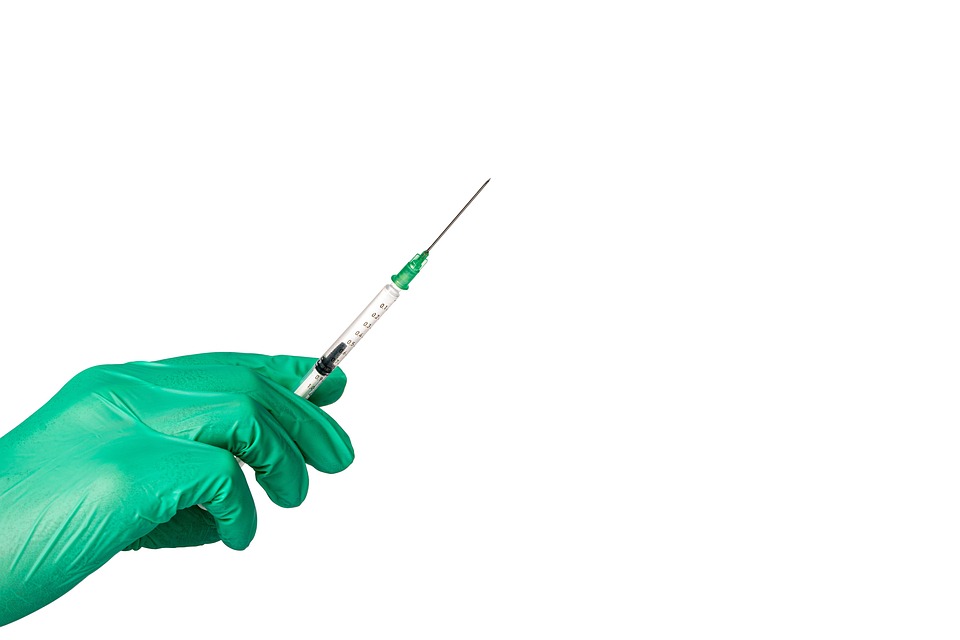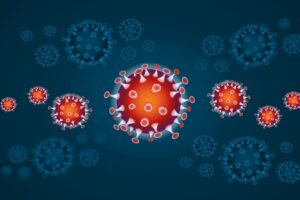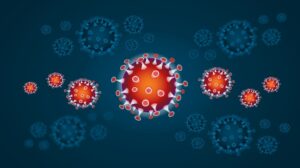Beyond Germs: Exploring the Hidden Powers of Your Immune System
The human immune system stands as a complex and intricate defense mechanism, a biological fortress guarding against a multitude of pathogens. While many discussions around immunity often focus on germs and infectious diseases, the immune system’s role is multifaceted, extending beyond mere germ-fighting. Understanding the full scope of immune function reveals a system deeply intertwined with our overall health, mood, and even longevity.
The Anatomy of the Immune System
To truly appreciate the hidden powers of the immune system, one must first understand its components. The immune system consists of various cells, tissues, and organs working symbiotically to detect and eliminate pathogens. Key players include:
-
White Blood Cells (Leukocytes): These are the body’s primary defense. They comprise several types:
- B cells: Produce antibodies targeting specific pathogens.
- T cells: Recognize and destroy infected cells and help regulate the immune response.
- Macrophages: "Eat" pathogens and dead cells, serving as scavengers in the body.
-
Lymphatic System: This network of vessels aids in the circulation of immune cells and the removal of toxins. Lymph nodes serve as filtering stations where immune cells can confront pathogens.
-
Bone Marrow: The production site for most blood cells, including immune cells, emphasizing the continual renewal of our defenses.
-
Thymus: A gland located in the chest where T cells mature, playing a crucial role in developing a functional immune response.
- Spleen: Filters blood and houses immune cells, acting as an important site for the immune response against blood-borne pathogens.
Immune System Functionality: More Than Just Germs
While the immune system’s primary role is to protect us from infectious agents, it plays a critical role in many other physiological processes:
1. Homeostasis and Repair
The immune system is essential for maintaining homeostasis. When tissues are injured, immune cells are recruited to facilitate repair. For example, macrophages promote healing by clearing dead cells and secreting growth factors.
2. Cancer Surveillance
An often-overlooked function of the immune system is its role in detecting and eliminating cancerous cells. This process, termed "immune surveillance," underscores why immunotherapies aiming to boost this functionality are gaining traction in modern medicine[^1].
3. Microbiome Interaction
The immune system coexists with the body’s microbiome—the community of microbes living within us. A delicate balance exists; while immune cells attack harmful pathogens, they must tolerate beneficial bacteria. This interplay can influence metabolism, gut health, and even mental well-being[^2].
4. Neuroimmune Connections
Emerging research suggests a significant connection between the immune system and the nervous system. Cytokines (immune signaling molecules) can affect mood and cognition, revealing links between stress, anxiety, and immune responses[^3]. This cross-talk can influence not just mental health but also how we physically respond to stressors.
Factors Influencing Immune Function
Just as a garden flourishes with the right care, the immune system thrives under specific conditions. Various lifestyle factors can significantly influence immune function:
1. Nutrition
A balanced diet rich in vitamins, minerals, and antioxidants supports immune health. Nutrient deficiencies can compromise immune responses. For example, vitamin C is crucial for the function of immune cells, while zinc is vital for T cell development[^4].
2. Physical Activity
Regular exercise can enhance immune function by promoting circulation and reducing inflammation. Moderate intensity workouts release endorphins, which can further foster a positive mood and beneficial immune responses[^5].
3. Sleep Quality
Sleep is essential for optimal immune function. During deep sleep, the body produces cytokines, proteins that combat infection and inflammation[^6]. Sleep deprivation can disrupt this balance, leading to compromised immunity.
4. Stress Management
Chronic stress generates excess cortisol, a hormone that can suppress immune function. Mindfulness practices, meditation, and yoga are allies in promoting resilience and a balanced immune response[^7].
The Role of Vaccines in Immunity
Vaccination exemplifies the immune system’s capacity to "learn." Vaccines introduce a harmless component of a pathogen or assemble a part of it, prompting the immune system to develop antibodies without causing disease.
1. Mechanism of Action
When vaccinated, the body creates a memory of the pathogen. If exposed to the actual pathogen later, the immune system can mount a swift and effective response. This principle underlies vaccine efficacy[^8].
2. Herd Immunity
Through vaccination, communities can achieve herd immunity, protecting those who cannot be vaccinated, such as infants or immunocompromised individuals, from serious illness[^9].
3. Continuous Innovation
Research continues to drive innovations in vaccine technology, including mRNA vaccines, which have demonstrated rapid adaptability to emerging pathogens, marking a new era in immunization strategies[^10].
Immunity Across the Lifespan
The immune system evolves throughout life, presenting unique characteristics from infancy to old age:
1. Infancy and Childhood
During infancy, the immune system is still developing. Maternal antibodies provide initial protection. Vaccines are critical in establishing long-lasting immunity against various diseases[^11].
2. Adulthood
As we transition into adulthood, immune responses become more efficient against common pathogens. However, lifestyle choices, such as diet and stress, can impact overall immune resilience.
3. Aging
Aging can lead to immunosenescence, a gradual decline in immune function. This increase in susceptibility to infections and cancers necessitates a focus on maintaining lifestyle habits that support immunity[^12].
Additionally, vaccinations for older adults can help bolster a waning immune system and protect against diseases like influenza and pneumonia, essential for quality aging[^13].
Exploring the Future of Immunology
The future of immunology holds great promise, with ongoing research uncovering new dimensions of the immune system’s capabilities and potential therapies:
1. Personalized Immunotherapy
Advancements in genomics and biomarker identification pave the way for personalized immunotherapies. Tailoring treatments based on individual genetic and immunological profiles can optimize outcomes for diseases like cancer[^14].
2. Microbiome Research
Further exploration into the gut-brain axis and the microbiome’s influence on immunity could unlock strategies for managing autoimmune diseases, allergies, and mental health conditions[^15].
3. Autoimmunity and Tolerance
Research is focusing on understanding how the immune system can mistakenly attack the body’s tissues, leading to autoimmune diseases. Improving our understanding of immune tolerance could lead to breakthroughs in safer treatments for conditions like Type 1 diabetes or rheumatoid arthritis[^16].
Conclusion: Embracing Immune Well-Being
To appreciate the immune system’s hidden powers, one must envision it not merely as a protector against germs but as a vital contributor to overall health and well-being. Simple lifestyle choices—including proper nutrition, regular exercise, adequate sleep, and stress management—can empower the immune system to perform its multifaceted roles effectively.
By understanding the intricacies of our immune systems and staying informed about innovations in immunology, we can embrace a proactive approach to health and wellness. As we continue to learn and explore the vast landscape of immunology, we aid our bodies in harnessing their innate powers, paving the way for longer, healthier lives filled with resilience.
References
[^1]: Sharma, P. et al. "Cancer Immunotherapy: Progress and Prospects." Nature Reviews Cancer 2021.[^2]: Blaser, M.J. "The Microbiome and Human Health." Nature 2020.
[^3]: Dantzer, R. "Cytokine-induced sickness behavior: a neuroimmune response to activation of the innate immune system." Journal of Neuroimmunology 2020.
[^4]: Aghamohammadi, A. et al. "Nutritional Immunity: A Critical Review." Clinical Immunology 2019.
[^5]: Campbell, W., & McCaw, J. "Physical Activity and Immune Function." Journal of Physical Activity & Health 2020.
[^6]: Besedovsky, L., & Lange, T. "Sleep and immune function." Frontiers in Immunology 2019.
[^7]: Turakitwanakan, W. et al. "Mindfulness practice: a potential tool for immune system." Journal of Health Psychology 2021.
[^8]: Plotkin, S. "Vaccines: A History." New England Journal of Medicine 2021.
[^9]: Fine, P. et al. "Herd immunity: history, theory, practice." EPIDEMIOLOGY 2011.
[^10]: Chaudhary, N. et al. "mRNA vaccines for infectious diseases." Science 2021.
[^11]: Krammer, F. "The human vaccine immune response." Nature Reviews Immunology 2020.
[^12]: Pawelec, G. "Immune aging and the impact of lifestyle." Nature Reviews Immunology 2020.
[^13]: Naylor, K. et al. "The role of the immune system in aging." Nature Reviews Immunology 2021.
[^14]: Merkerova, M. et al. "Advancements in personalized immunotherapy." Nature Reviews Cancer 2021.
[^15]: Nguyen, N. et al. "The interactions between microbiota and the immune system." Nature Reviews Immunology 2020.
[^16]: van der Heijden, J. et al. "Cellular immunology: mechanisms of autoimmune disease." Clinical Immunology 2021.


























Add Comment